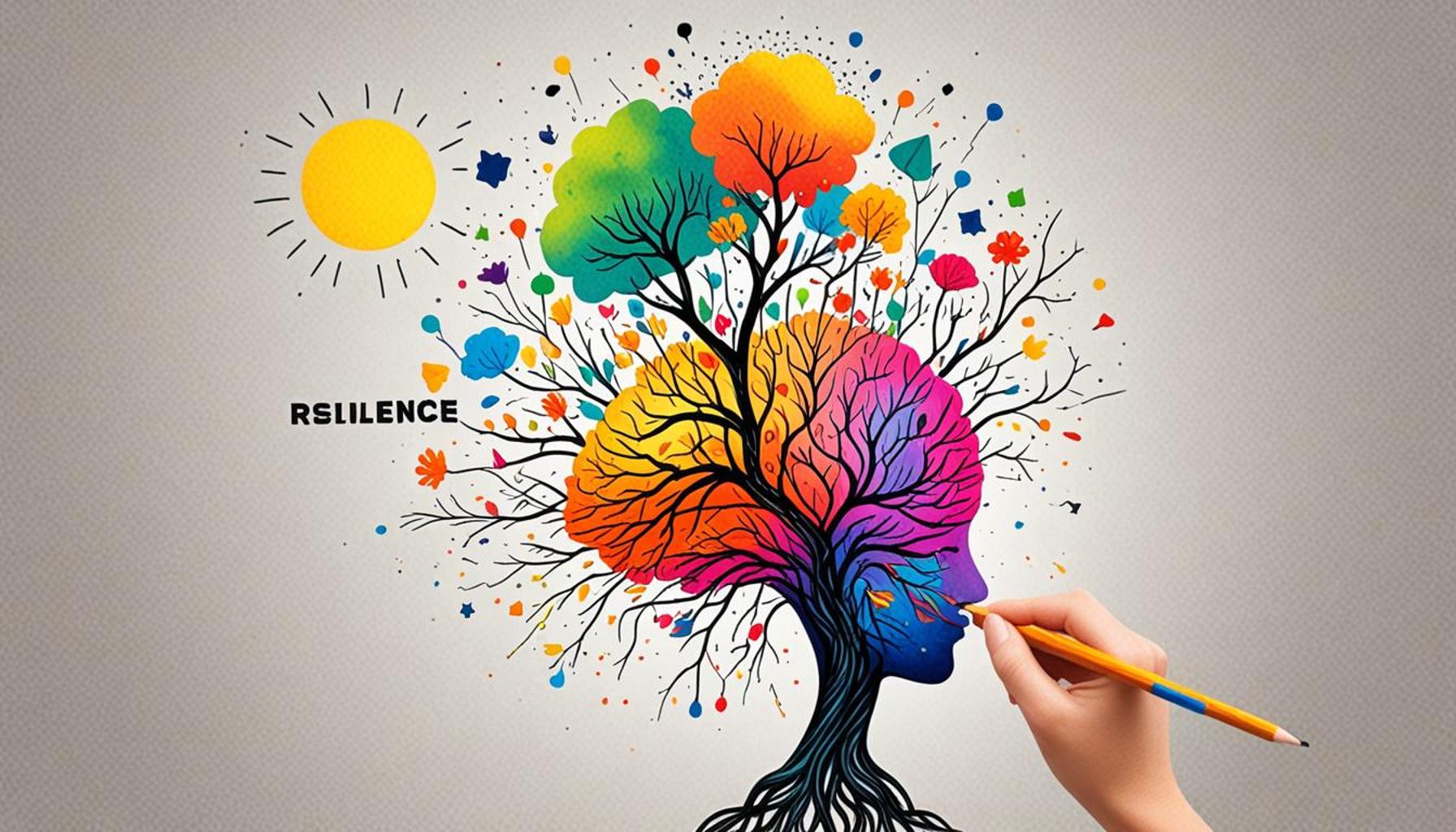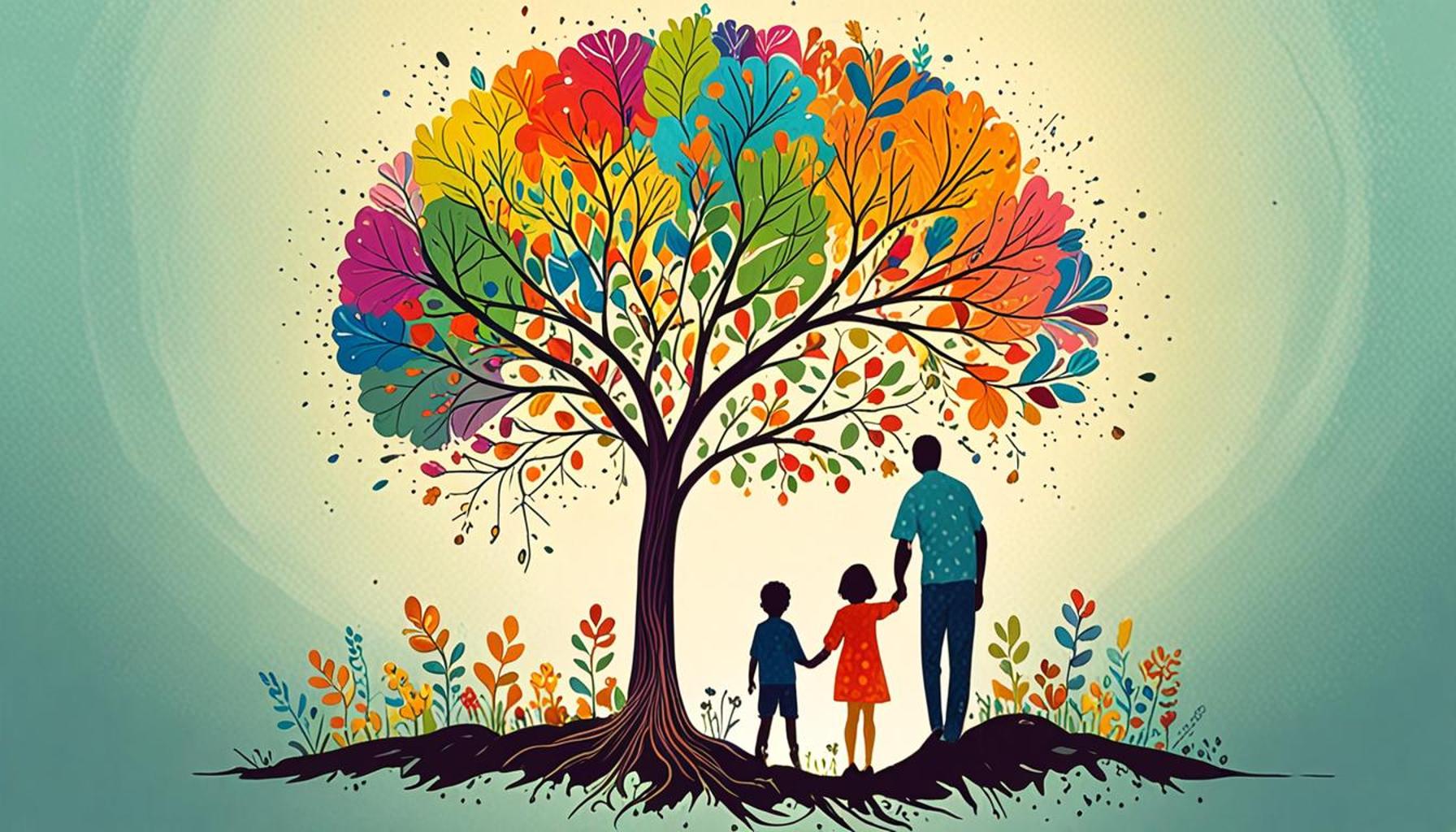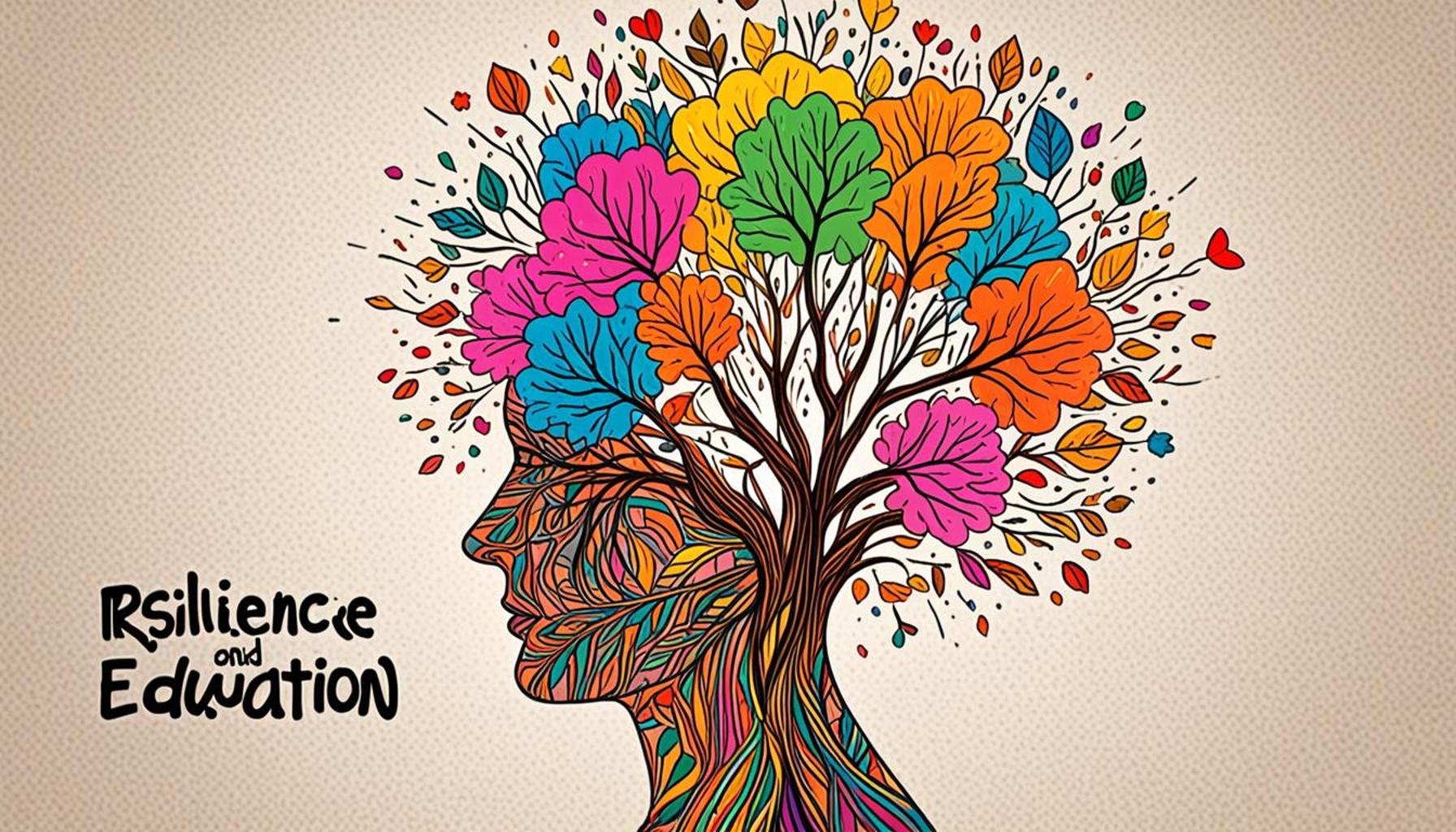Resilience in Times of Uncertainty: How a Growth Mindset Can Facilitate Adaptability

Understanding the Significance of Resilience
In an era where the only constant is change, the ability to remain steadfast becomes invaluable. Resilience is not merely the capacity to endure hardship but encompasses a comprehensive approach to facing life’s challenges head-on. It has profound implications for personal development and community well-being.
Defining Resilience
At its core, resilience is the capacity to recover swiftly from difficulties. It involves:
- The ability to bounce back from setbacks: This aspect emphasizes the importance of quickly regaining one’s footing after experiencing failures or disappointments. In Nigeria, where entrepreneurs often face economic fluctuations, learning from business setbacks can pave the way for innovative adaptations and new ventures.
- Maintaining optimism despite adversity: This involves keeping a hopeful outlook even when circumstances seem dire. For example, amidst the challenges posed by the COVID-19 pandemic, many Nigerians engaged in communal efforts to support those affected, showcasing an unwavering spirit of unity.
- Adapting to new circumstances while remaining focused on goals: Flexibility is crucial when navigating life’s uncertainties. Whether it’s adjusting one’s career path in response to the evolving job market or modifying farming techniques due to changing climatic conditions, adaptability is key to long-term success.
The Role of a Growth Mindset
Embracing a growth mindset complements resilience by changing the way one perceives challenges. It encourages viewing obstacles as opportunities rather than roadblocks. This transformative perspective can significantly enhance personal and professional growth, promoting:
- Creativity in problem-solving: In urban areas like Lagos or rural communities, innovative solutions are crucial for overcoming challenges such as traffic congestion or limited access to resources. A growth mindset encourages thinking outside the box.
- Persistence in the face of difficulties: Cultivating a culture of perseverance is vital. For instance, consider students preparing for the Unified Tertiary Matriculation Examination (UTME); those with a growth mindset often excel because they view failures as steps toward mastery rather than an end.
- A willingness to learn from failures: Acknowledging failure as a stepping stone rather than a dead end cultivates resilience. Many successful Nigerian entrepreneurs, like Iyinoluwa Aboyeji, faced numerous challenges before finding success, exemplifying the power of learning from setbacks.
Moving Towards Resilience and Growth
As we explore the interplay of resilience and a growth mindset, it becomes clear that these qualities foster not only survival in challenging times but also a flourishing life filled with opportunities. Individuals and communities that adopt these principles are equipped to navigate uncertainties effectively.
By focusing on developing these skills, we can unlock profound insights and practical strategies applicable to various aspects of Nigerian life—from adapting businesses to the digital economy to enhancing educational outcomes for students. Join us as we further investigate the pathways toward crafting a more adaptable and resilient future for all.
RECOMMENDED: Check out this similar article
Navigating Challenges with a Growth Mindset
In a landscape laden with uncertainty, the ability to pivot and adapt becomes essential. Those equipped with a growth mindset are more likely to embrace change, viewing it as an opportunity for learning rather than a hindrance. This mindset is particularly crucial in Nigeria, where socio-economic fluctuations often disrupt daily life. By cultivating a growth mindset, individuals and communities can cultivate an intrinsic resilience that helps them navigate challenges more effectively.
The Transformative Power of a Growth Mindset
The concept of a growth mindset, popularized by psychologist Carol Dweck, posits that skills and intelligence can be developed through dedication and hard work. This contrasts sharply with a fixed mindset, where individuals believe their abilities are static. Understanding the very essence of a growth mindset can significantly influence how one addresses obstacles. The following aspects illustrate how a growth mindset fosters adaptability:
- Reframing Failure: A growth mindset allows individuals to view failure as a vital part of the learning process. For instance, many Nigerian startups experience initial setbacks before finding their footing. This resilience born from learning enables entrepreneurs to pivot their strategies and innovate more effectively.
- Encouraging Collaboration: In challenging scenarios, collaboration becomes imperative. A growth mindset encourages individuals to seek input and support from others, fostering a sense of community. Collaborative efforts can lead to dynamic problem-solving in diverse environments, from bustling cities like Abuja to rural townships.
- Long-term Vision: Individuals with a growth mindset are often better at maintaining focus on their long-term goals, even amidst difficulties. By setting incremental objectives, they build a roadmap that guides their progress, ensuring they remain adaptable without losing sight of their aspirations.
Real-Life Examples of Adaptability in Nigeria
Examples abound in Nigeria demonstrating how a growth mindset can facilitate resilience in the face of uncertainty. During the recent global pandemic, small businesses and entrepreneurs were faced with unprecedented challenges. Yet, many adapted swiftly to the online marketplace, using social media to reach their customers. For instance, food vendors in Lagos turned to delivery services, reshaping their business models and discovering new revenue streams.
The educational sector, too, experienced a renaissance during these times. Some schools embraced technology, transitioning to digital learning platforms despite the initial hiccups of implementation. Teachers and students alike learned to embrace new methodologies, showcasing that success often emerges from adversity when there is a willingness to adapt.
By examining these narratives of resilience, it becomes clear that the intersections of a growth mindset and adaptability lead to powerful transformations. Whether overcoming economic challenges or embracing technological advancements, individuals are better positioned to thrive in an environment marked by uncertainty.
Navigating Challenges with a Growth Mindset
In moments of uncertainty, having a growth mindset becomes essential. This concept, popularized by psychologist Carol Dweck, emphasizes the belief that abilities and intelligence can be developed through hard work, good strategies, and input from others. Adopting this mindset allows individuals to view challenges as opportunities rather than obstacles. In fact, studies suggest that individuals with a growth mindset are more likely to embrace risk, persist in the face of setbacks, and learn from failures, all of which are key traits for adaptability.
The Role of Resilience
Resilience refers to the capacity to recover quickly from difficulties. It is a vital component of adaptability, especially in turbulent times. By nurturing a growth mindset, individuals can enhance their resilience. When challenges arise, those with a growth mindset are less likely to crumble under pressure; instead, they focus on solutions. For instance, during the COVID-19 pandemic, many individuals and businesses found innovative ways to operate, pivoting their strategies to survive an unprecedented crisis. This adaptability reflects an innate resilience fueled by a desire to learn and grow.
Building a Supportive Environment
Creating a supportive environment for oneself and others can significantly amplify the effects of a growth mindset. Encouragement and constructive feedback foster a culture where challenges are met with collaboration rather than competition. Team dynamics can benefit immensely from this approach, as members feel safer to express their ideas and concerns, leading to more innovative solutions in times of uncertainty.
Practical Steps for Developing a Growth Mindset
To cultivate a growth mindset, individuals can take several practical steps, such as:
- Embracing learning opportunities, even if they come from failure.
- Seeking feedback and using it constructively to improve performance.
- Surrounding themselves with others who foster a growth-oriented environment.
These steps can help individuals move towards a stronger adaptable mindset, ultimately enabling them to thrive in the face of uncertainty.
| Advantages | Key Characteristics |
|---|---|
| Increased Adaptability | Individuals with a growth mindset embrace change and pivot strategies effectively. |
| Enhanced Resilience | Resilient individuals recover from setbacks faster, reducing stress and maintaining motivation. |
By understanding the principles of resilience and a growth mindset, individuals can significantly improve their capacity to navigate the uncertainties of life, turning challenges into breeding grounds for innovation and personal development.
CHECK OUT: Click here to explore more
Strategies for Cultivating a Growth Mindset
While the benefits of a growth mindset are clear, the journey to cultivating this outlook requires intentional effort and practice. In the context of Nigeria’s dynamic landscape, understanding specific strategies to foster a growth mindset can significantly enhance resilience. The following approaches can serve as a roadmap for individuals and communities eager to embrace adaptability amidst uncertainty:
Embracing Lifelong Learning
In a world where change is the only constant, embracing lifelong learning becomes vital. The ability to continuously acquire new skills and knowledge fosters adaptability and breeds confidence in tackling the unknown. In Nigeria, a plethora of online learning platforms, such as Andela and NaijaTechGuide, offer courses ranging from coding to digital marketing. By taking advantage of these resources, individuals can enhance their skillsets, making them more competitive in an ever-evolving job market.
Practicing Self-Compassion
To develop a robust growth mindset, one must cultivate self-compassion. Recognizing that imperfection is part of the human experience allows for a more forgiving approach to personal setbacks. Nigerian artist and entrepreneur Lola Shoneyin emphasizes this in her interviews, often reflecting on the importance of treating oneself kindly during challenging moments. By accepting mistakes as opportunities for growth, individuals can maintain motivation and resilience even when circumstances become dire.
Setting Incremental Goals
Another core strategy for nurturing a growth mindset involves setting incremental goals. Breaking down larger ambitions into smaller, achievable milestones ensures that individuals maintain focus while also feeling a sense of accomplishment along the way. This approach can be seen in Nigeria’s youth-led initiatives, such as the Rotaract Club, where young leaders plan and execute projects aimed at community upliftment. Their continuous growth is evidenced by the successful execution of smaller-scale activities that lead to more significant community impact.
Utilizing Feedback as a Tool
Receiving feedback can often be daunting, but individuals with a growth mindset view it as constructive rather than critical. In Nigeria’s fast-paced business and tech environments, feedback is an integral part of professional development. Workshops and mentorship programs are emerging across cities like Lagos and Port Harcourt to address this need. For example, organizations like Startup Lagos provide platforms where emerging entrepreneurs can pitch their ideas and receive constructive criticism, fueling their development and adaptability.
Building a Supportive Community
Finally, surrounding oneself with a supportive community is key to fostering resilience in times of uncertainty. Building networks where individuals encourage one another can significantly strengthen an adaptive mindset. Nigerian communities often exemplify this by banding together in times of difficulty, showcasing solidarity through local initiatives, such as cooperative societies or community development programs. Initiatives like the Nigerian Youth Climate Coalition exemplify how support and collaboration can contribute to adaptive strategies in the face of pressing environmental challenges.
By employing these strategies, individuals in Nigeria can nurture a growth mindset that amplifies their resilience while navigating the complexities of life under uncertainty. The adaptation witnessed in various sectors underscores the pivotal role that a proactive mindset plays, transforming challenges into avenues for success.
ADDITIONAL INSIGHTS: Expand your understanding here
Conclusion
In conclusion, navigating the tumultuous waters of uncertainty requires more than just resilience; it demands a strong growth mindset that empowers individuals to adapt, learn, and thrive. As detailed throughout this article, embracing challenges, fostering a culture of lifelong learning, and utilizing feedback can act as catalysts for transformation in both personal and professional realms. In the vibrant and often unpredictable landscape of Nigeria, cultivating these skills can make the difference between stagnation and success.
Innovative communities have shown us the power of collaboration and support in overcoming obstacles, reminding us that we are not alone in our struggles. By participating in networks and initiatives, like the Nigerian Youth Climate Coalition, individuals can harness collective strength to bolster their resilience. As we face national and global uncertainties, it is crucial to approach each setback not as a defeat but as an opportunity for growth.
Ultimately, cultivating a growth mindset in Nigeria can enhance not only individual adaptability but also the collective resilience of communities. As the world evolves, our capacity to embrace change, learn from experiences, and adopt a forward-thinking approach will be the key to thriving amid uncertainty. The journey towards resilience is ongoing, and by prioritizing these foundational principles, we can transform challenges into stepping stones for a brighter future.



